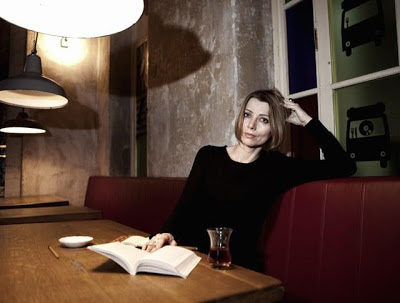 |
| Elif Shafak |
As the protests in Turkey continue, I have started to read "The Bastard of Istanbul" by turkish novelist Elif Shafak. I can't imagine a better moment to read this book than the current one. For someone who isn't very much into reading the newspaper but still likes to read a good novel, this is the perfect opportunity to mind-travel to Turkey. You will discover a fresh and completely subjective view on this country and the people living their everyday life in Istanbul, a view that is probably not provided on CNN. While other superimportant turkish author Orhan Pamuk knits to a rather fine tension, Shafak knows how to not prolong the thread of the story in a too exhausting manner (I am still a huge fan of Orhan Pamuk!).
So I really couldn't resist to put some quotes of this amazingly written, smart, virtuous (what other words do I find to express my admiration to this book?) and yet hilarious novel into a blogpost! I hope these quotes explain why I put the novel in a direct context with what is happening in Turkey currently.
“We're stuck. We're stuck between the East and the West. Between the past and the future. On the one hand there are the secular modernists, so proud of the regime they constructed, you cannot breathe a critical word. They've got the army and half of the state on their side. On the other hand there are the conventional traditionalist, so infatuated with the Ottoman past, you cannot breathe a critical word. They've got the general public and the remaining half of the state on their side."
❊
“Yeah, we should all line up along the Bosphorus Bridge and puff as hard as we can to shove this city in the direction of the West. If that doesn't work, we'll try the other way, see if we can veer to the East. It's no good to be in between. International politics does not appreciate ambiguity."
❊
“How on earth could she now tell Armanoush that, though only nineteen, she had known many men's hands and did not feel a speck of guilt for it? Besides, how could she ever reveal the truth without giving the wrong impression to an outsider about "the chastity of Turkish girls"?
This kind of "national responsibility" was utterly foreign to Asya Kasancı. Never before had she felt part of a collectivity and was accomplishing a pretty good impersonation of someone else, someone who had gotten patriotic overnight. How could she now step outside her national identity and be her pure, sinning self?"

No comments:
Post a Comment